El Palacio de Aguas Corrientes
Towards the end of the 19th Century, after a series of increasingly serious disease outbreaks (in 1871 Yellow Fever wiped out nearly 10% of the city’s inhabitants), it was decided to do something about the quality of the drinking water. Work began in 1887 on a central pumping station which when finished in 1894 turned out to be one of the most flamboyant architectural works in a city not known for its understated buildings. Officially named El Gran Depósito Ingeniero Guillermo Villanueva it soon became known by a much more fitting and stately name, El Palacio de Aguas Corrientes (The Palace of Running Water).
And frankly, Palace is not an overstatement. It may well have contained 12 enormous tanks with a total capacity of 72 million litres of water, but it’s the exterior that truly grabs the attention. Decorated with 400,000 ceramic and glazed terracotta tiles made by Royal Doulton in England and sporting the coats of arms of the 14 (at the time) Argentinian provinces, it’s hard not to be impressed by the sheer effort put into a public utility building.
Whilst its water-pumping days may be over, it still houses the Buenos Aires Water Company’s offices as well as a small water works museum. It can be found on Avenida Córdoba, a couple of blocks from the Callao subte station on Line D.
If you liked this post then you would love our Pay-What-You-Want tours.
Or if you want to see more, why not contact us to arrange your own custom tour.





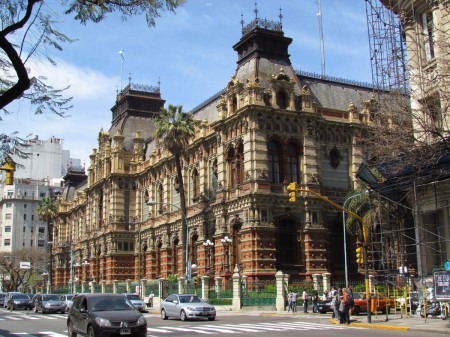
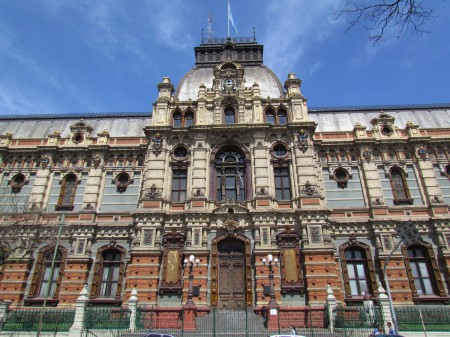
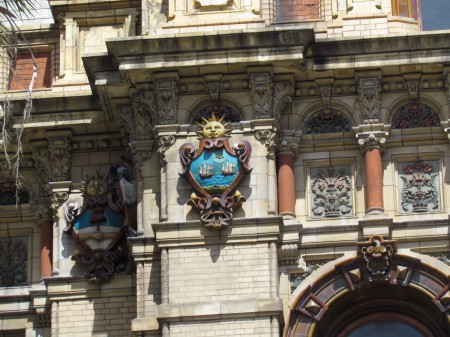
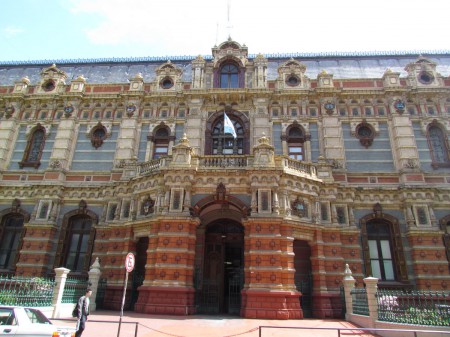
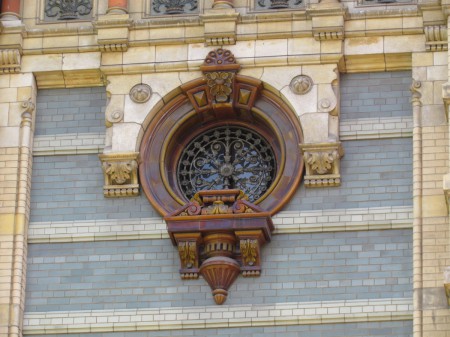
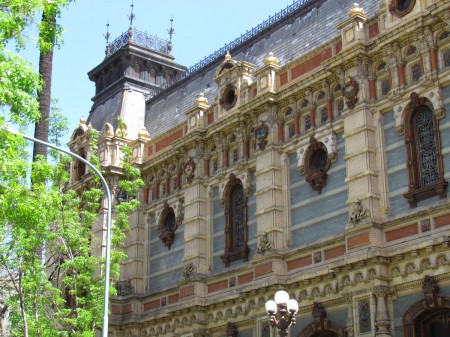
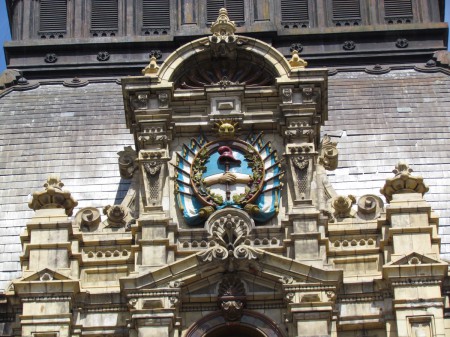

We will be in buenos Aires on Dec 25th only. Is anything open, museums, etc? Will you be giving a tour that day?
Thank you.